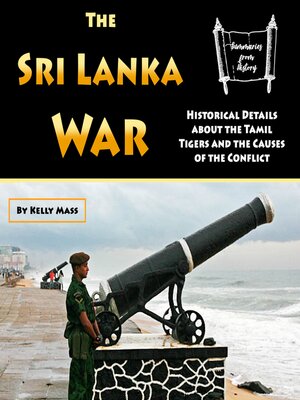Sri Lanka Civil War
audiobook (Unabridged) ∣ Historical Details about the Tamil Tigers and the Causes of the Conflict
By Kelly Mass

Sign up to save your library
With an OverDrive account, you can save your favorite libraries for at-a-glance information about availability. Find out more about OverDrive accounts.
Find this title in Libby, the library reading app by OverDrive.



Search for a digital library with this title
Title found at these libraries:
| Library Name | Distance |
|---|---|
| Loading... |
This audiobook is narrated by a digital voice.
The island nation of Sri Lanka, known to the world as Ceylon until 1972, had long been celebrated as a tropical paradise where diverse ethnic and religious communities coexisted in relative harmony under British colonial rule and during the early years of independence. However, beneath this surface tranquility lay deep-seated tensions between the Sinhalese majority, comprising approximately 75 percent of the population, and the Tamil minority, which included both the Sri Lankan Tamils who had lived on the island for centuries and the Indian Tamils brought by the British to work on tea plantations during the colonial period. These ethnic divisions, exacerbated by differences in language, religion, and historical grievances, would eventually explode into one of the world's longest and most brutal civil wars, lasting from 1983 to 2009 and claiming over 100,000 lives while devastating a country that had once been considered a model of post-colonial development and democratic governance.
The historical roots of ethnic tension in Sri Lanka can be traced back to ancient migrations and conquests that created distinct communities with different languages, religions, and cultural traditions, but these differences were significantly amplified and politicized during the colonial period when British administrators employed divide-and-rule tactics that favored certain groups over others. The Sinhalese, who spoke an Indo-European language related to those of North India and practiced Theravada Buddhism, viewed themselves as the indigenous people of the island and the rightful guardians of Buddhist civilization. The Sri Lankan Tamils, concentrated primarily in the northern and eastern provinces, spoke a Dravidian language related to Tamil Nadu in South India and practiced Hinduism or Christianity, maintaining cultural and religious connections across the narrow strait that separated Sri Lanka from the Indian mainland.







